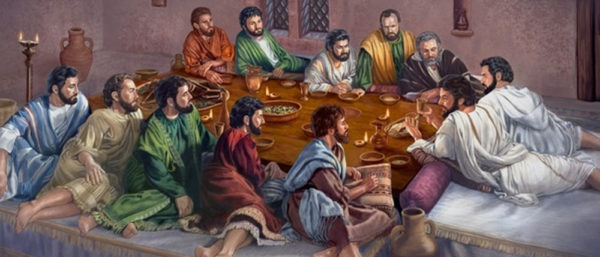Μήτι ἐγω; (Not me?!)
The interrogative in Greek sometimes comes upon you unexpectedly. You may think you are reading a statement which seems counterfactual until you get to the end of the sentence and find the Greek question mark. It looks like a semicolon. Only then you get the sense of it. As an example you might read “Elephant do […]
What Kind of καί is that?
Right after the story of the woman who anointed Jesus, Mark tells us about Judas going to the high priests to παραδίδωμι (pa-ra-di-do-mi) [hand over, betray (literally: give beside)] Jesus. The sentence which starts this passage begins with the word καί (kai). This is the most common word in any Greek manuscript and has several of uses. Most […]
What Causes Wandering?
In the thirteenth chapter of Mark, Jesus begins telling the disciples about future events by saying: “See that no one leads you astray…” The Greek word translated “to lead astray” here is πλανάω (plan-a-o) which is more frequently translated as “to cause to wander” in other Greek documents. It’s the root of the word πλανῆτις (plan-ay-tis) “wanderer” from which […]
Hear, O Israel!
Mark 12:28-34 closes out a passage describing a series of debates between Jesus and the important political factions in Jerusalem with one of the scribes asking him, “What is the greatest commandment?” Scribes were not just people who made copies of the Scripture but were considered to be experts on it. Ezra was “a scribe […]
Looking Up
There is a lot of εὐαγγέλιον (eu-ang-el-i-on: good news, gospel) in the story of blind Timaeus Bartimaios, who made his living begging just outside Jericho. I find it interesting that we know him by name, unlike almost every other person Jesus encountered as he travelled through Judea and Samaria. To me this indicates his name […]
Give It Back
In chapter 12 of Mark’s Gospel there is an account of the Pharisees and Herodians laying a trap for Jesus. They imagined he would be backed into a rhetorical corner by their clever question. One answer would allow them to portray him as seditious to the Roman authorities. The opposite would separate him from a […]
Respecting the Son
Toward the end of the Parable of the Vineyard in Mark 12, the vineyard owner sends his son to collect the portion of the fruit due him from the farmers to whom he had leased it. After having sent numerous servants, all of whom had been disrespected, beaten, or even murdered, to accomplish the task, […]
Why Did the Fig Tree Wither?
The story of the fig tree in Mark 11 has always bothered me. Why would Jesus curse a tree for not bearing fruit when it wasn’t the season for bearing fruit? It seems out of character for him. Agnostic socialists like Bertrand Russell have used it as an example of how Jesus is just a fictional […]
Let Go!
There is a passage in the Gospel of Mark where Peter says to Jesus, “See, we have left everything and followed you.” This sentence contains a Greek word which, in my opinion, is the most profound in the New Testament: ὰφίημι (af-ee’-ay-mee). It’s a compound word, combining the preposition “from” and one of the verbs […]
An Additional Commandment
When Mark tells the story of “Rich, Young Ruler” the title character is initially described literally as “one running toward him and kneeling when he (Jesus) was going out in the way.” We don’t find out about his wealth until the very end and he’s never described as young or a ruler. Those details are […]









